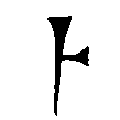


 |  |  |
|---|
| ||
|---|---|---|
| [Olympian Lore] In Olympian legend, Ikara was a female Solus or else a Kattha who had bargained with a mage to gain wings, who had become obsessed with the Sun God Primus, and failed to gain his notice - for he was a god, and she a mere mortal. She flew so high, chasing after the Sun God in his flaming sky-ship, that she drew too close and caught aflame, plummeting to the ground. In later, more popular versions of the tale, the gods had mercy on Ikara and raised her from the ashes anew, and she now can be seen on occasion, chasing after the sun, observed as a phenomenon known in other cultures as a "sun dog". Thus, she is often associated with the imagery of rebirth and of the phoenix. Also the name of a town in Olympia, where a shrine has been built to Ikara next to a small temple of Primus. There, Ikara is revered as a goddess, albiet not of the original pantheon. | ||
 The Sphere of Illusion, one of the twelve recognized Spheres of magic by the College Esoterica, deals with, as it implies, the powers of illusion. Illusionists, by means of spells, can create simulations of reality by creating images of light, patterns of sound, and even hints of scent and other sensations. However, illusions of this nature affect sensations in the environment -- not by directly affecting the mind itself. More powerful "illusions" can have such potency as to create a magically solid construct that may last for the duration of the spell and even be able to act upon its surroundings, if the ritual is potent enough. The Sphere of Illusion, one of the twelve recognized Spheres of magic by the College Esoterica, deals with, as it implies, the powers of illusion. Illusionists, by means of spells, can create simulations of reality by creating images of light, patterns of sound, and even hints of scent and other sensations. However, illusions of this nature affect sensations in the environment -- not by directly affecting the mind itself. More powerful "illusions" can have such potency as to create a magically solid construct that may last for the duration of the spell and even be able to act upon its surroundings, if the ritual is potent enough.The rune of this Sphere is "The Mirror", and Illusionists typically dress in robes of black (though, given their nature, they may opt for other attire so as to not give their true profession away). According to Rephidim scholarship, the Sphere of Illusion is most closely related to the Sphere of Shadow (Shadow, Sphere of), and diametrically opposed to the Sphere of Spirit (Spirit, Sphere of) - the latter often being associated with the sense of "truth", for purposes of this debated opposition scheme. | ||
| This is the official language of the Nagai Empire, best suited for serpentine tongues. Although the "hiss" accent may be disconcerting to non-Naga, the overall accent of the language carries certain associations with high-brow sophistication and premier education. The truly well- educated (and wealthy) will often have Naga teachers in the areas of the sciences, and having a faintly Imperial accent is not unheard-of among the well-to-do. While not as wide-spread as Rephidim Standard, since even the Nagai utilize that language widely, Imperial is still one of the major languages in use, especially because of the Nagai Empire's many holdings (former and present) abroad. | ||
| ||
| (obscure information outside of Ashdod, or religious circles) Inala is also the name of a mountain just outside of Babel, and home to a "shrine" to the goddess of the same name -- in practice, a brothel where all manner of vices are performed, many of them quite unspeakable. The "Children of Inala" are priests and priestesses born and bred into the service of this goddess, and cannot leave the priesthood except by death. It is a whispered rumor that those who are born to the "Children" who are ugly or deformed in any way are offered up as sacrifices. Those who are not "perfect" but still "usable" are sold off to the various Houses as child servants. | ||
| ||
| It'un is a contracted form of 'little one'. It is used principally to refer to young children, although some of the elderly will tend to use it for everyone younger than themselves. It's always used affectionately. | ||
| ||
| Jadai is an island located off the east coast of the Savan Territories, near Nagai City, and formerly part of the Nagai Empire. Jadai is considered part of the Savan, and is therefore the easternmost portion of the Savan, though not connected to the mainland. Jadai is dominated by and mostly populated by Kirigai. The capitol city of Jashin, located on the western side of the island, and thus closer to Nagai City, is also the location of the major port of the island. | ||
| Also once known as "Faraon's Dome", this is a large roughly spherical structure built into the side of the main "stalactite" hanging from the bottom of Rephidim, and is the largest structure in Underside. It was once an exclusive resort catering to the rich and powerful, and also the base of operations of a dragon crime lord known as "Faraon the Friend", until his ouster by Rephidim Temple forces led by Arch-Inquisitrix Esther yodh Rahab. It is home to a self-contained artificial environment, replete with gardens and waterfalls, and luminescent varieties of plant life. In the aftermath of Faraon's defeat in 6104 RTR, it is presently in the hands of the Rephidim Temple. | ||
| ||
| Capitol city of the island territory of Jadai, formerly part of the Nagai Empire. Jashin was once dominated by the Nagai, but is now dominated by Kiriga rulers, since it is mostly populated by Kirigai. It is a major port city for the island as well, and its location between the continents of Ur and Lamu make it a frequent stopping point for ships making the journey between those two continents, whether by air or by sea. | ||
| ||
 Jeebits are particularly malevolent (and small) creatures found in the Wandering Roams (though preferably NOT found if it can be managed). They are no larger than 6 inches in height, though on their surprisingly powerful legs, they are capable of leaping several feet. They capture prey by means of shocking them with their antennae. They also attack creatures they have no intention of preying upon, for all intents and purposes just to be annoying, for all anyone can tell. Despite this malicious bent, they are apparently non-sapient. Jeebits are particularly malevolent (and small) creatures found in the Wandering Roams (though preferably NOT found if it can be managed). They are no larger than 6 inches in height, though on their surprisingly powerful legs, they are capable of leaping several feet. They capture prey by means of shocking them with their antennae. They also attack creatures they have no intention of preying upon, for all intents and purposes just to be annoying, for all anyone can tell. Despite this malicious bent, they are apparently non-sapient.
| ||
| ||
| Literally, "People who are not." Implied is "People who are not Nagai", though it is used only to refer to reptilians and pseudo-reptilians who happen to not be Nagai ... not the broader collective of species on Sinai in general. The singular, "Jinga" is very rarely used, but "Jingai" refers to, as a collective, the various reptiloid sapient races found in abundance in the Nagai Empire, specifically excluding the Nagai themselves. This would include the Shigai, Rokugai, Kirigai and (excluding the Nagai) the Nigai. The plural (as in, referring to a finite number) would be "Jingas". In the Nagai Empire, only Nagai and Jingai may be considered citizens. The Jingai are "second-class citizens" by comparison. | ||
| ||
 Bipedal wolf-forms on Sinai are known among Rephidim-dominated circles as "Jupani", a reference to the race found in the Himar region. It may well be that the city-born wolves found in Rephidim are entirely unrelated to the Himar variety. But in any case, the name has stuck. Bipedal wolf-forms on Sinai are known among Rephidim-dominated circles as "Jupani", a reference to the race found in the Himar region. It may well be that the city-born wolves found in Rephidim are entirely unrelated to the Himar variety. But in any case, the name has stuck."City-Born Jupani" possess keen senses of hearing and smell, and many are possessed of impressive strength -- making them ideal guards. A majority of Rephidim Temple's (non-Zelak) guards are wolves. | ||
| ||
| (plural: Jupani or Jupanis) 1) Wolf-like digitigrade, semi-feral humanoids lacking human-like head hair (differing from certain other "Jupani" on Sinai), found mostly in the wilderness areas of Himar. Due to the practices of the "wild" Jupani, there are certain negative stereotypes about female wolf-types of any true species, widespread in Rephidim-dominated Sinai society. 2) A term applied generically to all wolf-like humanoid sapients found on Sinai, even though there are at least three separate species: the Himarian Jupani, the "City Jupani" (occasionally referred to as "Karnors" or "Carnors"), and the massive Titanians. Vykarins, despite somewhat wolf-like features, are not considered "Jupani". | ||
| ||
 The Jurah are trained warriors among the Hekoye, specializing in unarmed hand-to-hand combat, but capable of using a bow or blunted sticks if deemed necessary. The Jurah are trained warriors among the Hekoye, specializing in unarmed hand-to-hand combat, but capable of using a bow or blunted sticks if deemed necessary.
| ||
| K'tinza is a board game played on a grid, very much akin to chess. It is a popular game among the social elite, and to be a master at this game is to command considerable respect in some circles. This game is a predecessor of and closely related to k'trinzhai, which is primarily different in that the latter involves three players rather than two, adding a whole new element to the game. Still, k'tinza is the more widely played and respected of the two games, considered to involve more raw logic than the psychological "mind games" that so often dominate k'trinzhai's interplays of alliance and betrayal. | ||
 K'trinzhai is a board game played on a triangle-tiled playing board, with three players. The rules are closely related to k'tinza, a chess-like game, aside from the shift from two- to three-player competition. In a three-way game, a new element is added, as k'trinzhai champions have to rely to some degree on psychology, as it is often that the apparently more powerful opponent is bested by an alliance of the two others before they turn on each other to finally win the game. K'trinzhai is a board game played on a triangle-tiled playing board, with three players. The rules are closely related to k'tinza, a chess-like game, aside from the shift from two- to three-player competition. In a three-way game, a new element is added, as k'trinzhai champions have to rely to some degree on psychology, as it is often that the apparently more powerful opponent is bested by an alliance of the two others before they turn on each other to finally win the game.In political circles, references to k'tinza or k'trinzhai are often made in much the same way allusions are made to chess in our own world when talking of "pawns", "check and mate", and so forth. |
| Home Page |
Player Guide |
Log Library |
Recent Logs |
|---|---|---|---|
| Encyclopedia |
Dramatis Personae |
Art Gallery |
Moz Ezley Asylum |